by guest blogger Rich Baringer,
 One of the major points that Michael Pollan makes in his book, In Defense of Food, is something that really resonates with me. It’s the idea that everything is connected–the earth, our food, people, animals, our health. With the growth of processed foods, these relationships are removed from our eating–we’re just ingesting instead of living in that natural circle that we were meant to be a part of. And nowhere does this show itself more than in our health.
One of the major points that Michael Pollan makes in his book, In Defense of Food, is something that really resonates with me. It’s the idea that everything is connected–the earth, our food, people, animals, our health. With the growth of processed foods, these relationships are removed from our eating–we’re just ingesting instead of living in that natural circle that we were meant to be a part of. And nowhere does this show itself more than in our health.
Pollan writes:
Health is, among other things, the product of being in these sorts of relationships in a food chain…If the soil is sick or in some way deficient, so will be the grasses that grow in that soil and the cattle that eat the grasses and the people who drink the milk from them.
As I said, we were built to have these relationships with our food and the soil. We, and other animals, are wired to recognize both the good and bad in the foods that we are considering. These relationships have been fostered for generations–since we were out hunting and gathering. We know when a fruit or vegetable is ready to eat–we know the color or the scent or the taste. The plant is telling us that it is ready to spread it’s seeds by being ripe. Put seeds inside a juicy peach or apple and some animal will eat it and spread the seeds. It just so happens that this is also the time when the most nutrition can be gotten from a plant.
But in the Western diet, our senses are being fooled by artificial sweeteners or colors. The processing of foods also causes us confusion.
Pollan tells the story of refined flour. How the development of rollers, which took the place of stone grinders, removed the nutritious parts of the wheat from the flour. The now-white flour looked great, but didn’t give any kind of nutrition, as opposed to stone-ground. Pollan says:
Wherever these refining technologies came into widespread use, devastating epidemics of pellagra and beriberi soon followed. Both are diseases caused by deficiencies in the B vitamins that the germ had contributed to the diet.
So what came next? The fortifying of flour with these missing vitamins in the 1930s. And in 1996, the government saw that our diets were low in folic acid, so millers were ordered to add it to flour. And on and on it goes. “Real” food becomes “Frankenstein” food–a bunch of components put together. This is great, except it ignores the idea that “A whole food might be more than the sum of its nutrient parts.” Nutrients occurring naturally in, say, an apple, work in tandem and do more good than each of the nutrients taken separately.
Next time, we’ll talk about corn and soy–things we eat way too much of.
Read In Defense of Food, part 2 here.
Read In Defense of Food, part 1 here.
Rich Baringer is a personal chef and owner of Dinner’s Done. He lives in Blooming Glen with his wife, Mary Beth, and son, Jake. He is a strong supporter of local food and sources locally for his clients. And his food is really good. Check out his website for more about him.




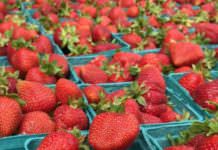
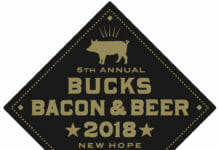


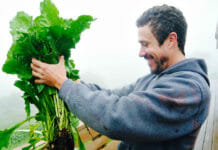
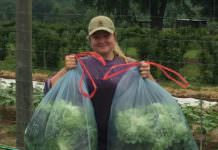
![What we’re reading [Oct 16 2017]](https://www.buckscountytaste.com/wp-content/uploads/2017/10/coffee_macbook_reading_pexels-photo-414630-218x150.jpeg)
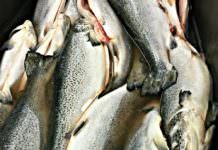
Right on, right on Lynne!
Why do people insist on buying and ingesting processed food? Food is so sensual. It assaults our senses with its vibrancy. Processed food removes every joy that food provides in its natural state. Says a lot about out culture.
Kim Arnold liked this on Facebook.
Pamela Silmser Andrews liked this on Facebook.
Betsy Keller liked this on Facebook.
In Defense of Food, part 3: Rich Baringer writes about Michael Pollan’s book http://t.co/QmRDaHVxMI